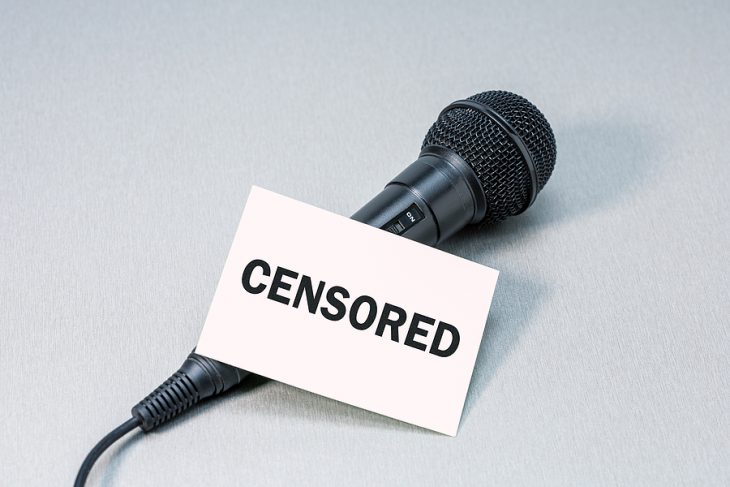
Mostly francophones from Québec
By Denis Carmel
OTTAWA – After a group of 60 people, including Radio-Canada personalities, sent an open letter to the CBC/Radio-Canada asking it to refuse to comply to the sanctions imposed by the CRTC on the use of the “N-word” on-air, more people and groups came out against the decision.
Some are asking the public broadcaster to pushback, some are demanding the Minister of Canadian Heritage or the Prime Minister to take a stand.
The Fédération professionnelle des journalistes du Québec, representing journalists in Québec, said through its president “All dialogue is healthy for a society, the confrontation of ideas allows us to move forward collectively. To order to ban the use of a word, regardless of its context, based only on a subjective and arbitrary feeling devoid of any legal basis, is to make society drift into a new Great Darkness.”
Of course, the Bloc Québécois through the voice of the Heritage critic Martin Champoux, added: “The CRTC’s primary mandate is to ensure that the Broadcasting Act is properly applied. It seems to me that the principles of freedom of expression and journalistic independence, which are enshrined in the regulations, have not been defended and have instead been pushed aside by social pressure or social unrest.”
“The CRTC has been less severe with garbage radio than with Radio-Canada. André Arthur said things about Blacks that are much worse than quoting Pierre Vallières’ book. And yet, he was never bothered by the CRTC,” Marc-François Bernier, professor of journalism ethics at the University of Ottawa was quoted saying in Le Devoir.
Conservative leadership candidate, Jean Charest is quoted saying: “The CRTC’s decision against Société Radio-Canada undermines freedom of speech. Trudeau’s silence on this confirms his government has no respect for this fundamental liberty. In a democratic society, the government cannot dictate what is discussed in the media. When I am PM, I will reform the CRTC to keep it to its original mandate and out of policing free speech or content.”
Québec’s premier, François Legault was quoted saying that it should not be the CBC/Radio-Canada to apologize but the CRTC itself.
In a column in Québecor-owned Journal de Montréal, Guy Fournier wrote: “The decision that the CRTC has just rendered does not bode well for the decisions it will have to make when the law on online streaming comes into force. As soon as the first draft was tabled by Minister Steven Guilbeault and the amended draft by Pablo Rodriguez, voices were raised to denounce the new powers the CRTC will have.”
Fournier is a past chairman of the board of the CBC/Radio-Canada. He had resigned after he made controversial comments during the show Tout le monde en parle.
Good thing the CRTC decision was not issued during the debate on Bill C-11!
In an email, a spokesperson for Radio-Canada said the broadcaster was aware of the “wide range of opinions” on the CRTC decision. “Radio-Canada recognizes that the use of the N-word is offensive,” he said, adding that it’s been used sparingly and carefully on its airwaves. “This decision and the dissenting opinions that came with it illustrate the complexity of the issue.”
The CBC said it had “taken note of the various opinions raised by the CRTC’s decision” but wanted to take “the necessary time to study [the decision] and the next steps to be taken.”
The Canadian Press noted that in 2020, former CBC News host Wendy Mesley was suspended from hosting and was disciplined after an internal investigation found she used offensive language on two separate occasions during editorial meetings.
In a lengthy statement on Twitter, Mesley said she used the “N-word” while mentioning Vallières’s book and as part of discussions about racism and discrimination, and said she was “deeply sorry and ashamed.” Mesley retired from CBC last summer.
Cartt.ca understands there will be a CBC board meeting this week where that issue will be raised.
“We must understand that this word is heavy with meaning and that its use is deeply hurtful to black Canadians. We must also remember that such a decision must take into account the freedom of the press, which is fundamental to our democracy, and which must always be protected,” wrote Minister Pablo Rodriguez in French, in an email, insisting on the need to “respect and preserve” the independence of the public broadcaster and the CRTC.
He also recalled that the CBC has a 30-day period to appeal the decision to the courts if it wishes. “We will not comment further,” he added, without taking a clear position.



